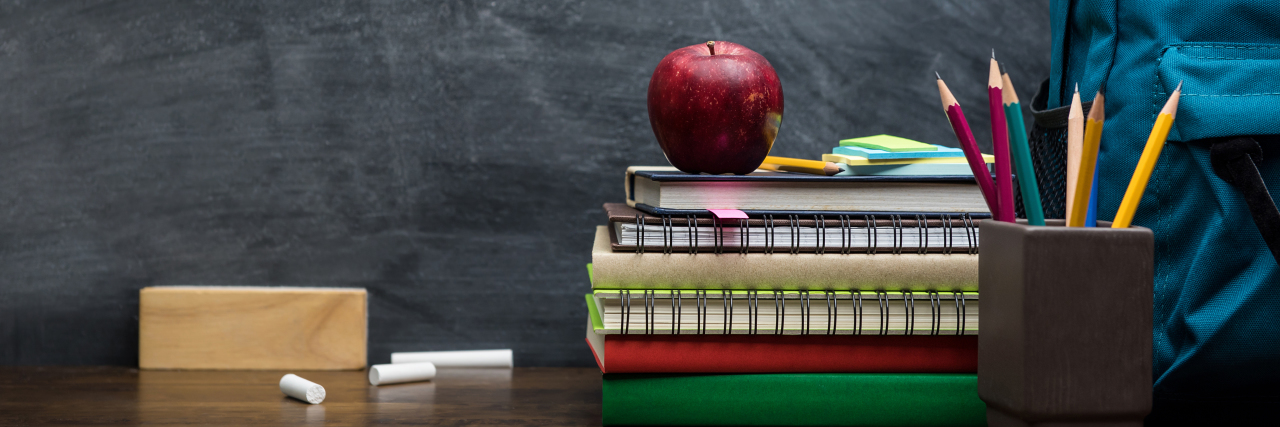Going back to school creates a flood of emotions for children — and their teachers, too! I’m entering my 25th year of teaching, and I have cerebral palsy. Each year, I think about how I’m going to talk about cerebral palsy with my students. I teach in the same high school district where I grew up and graduated in 1988, so the love and support I’ve received from my hometown community has been absolutely amazing. I feel so incredibly blessed to teach in the same high school where I grew up.
On the first day of school, I review the rules, procedures and schedule we will follow. But I also talk about cerebral palsy openly and honestly to help my students understand. Before my students notice the color of my eyes, they notice I use a rollator to help me with balance when I walk. The rollator also helps me to carry books, papers and supplies.
I explain that I was born with cerebral palsy because I was a small baby — only 2 pounds at birth and three months early. I relate how I have the same muscles as they do, but I’m not as coordinated with my walking, balance or posture. I admit that I may trip and fall once in a while, but that’s part of having CP. It can be tough to stay on my feet, especially if I’m tired or if it snows. My students usually ask questions: “Does it hurt?” Yes, if my muscles tighten up. “Can you drive?” Yes, I have been driving since I was 16. “Will it get any worse?” No, it will stay the same.
The conversation crushes an invisible wall between my students and me. They understand my condition and they know it’s OK to ask me about it. As a result, we all feel more at ease.
As I’ve gotten older, I’ve become better at asking my students to help me with tasks during the day. They are more than happy to assist with passing out or collecting papers, sharpening pencils, plugging in chargers for computers and carrying books. At the end of the year, my students even help me pack up my classroom.
We learn from each other every day. My students have disabilities too, but they strive to reach their goals in the classroom and in their school activities.
When I was a teenager, I was quiet and I didn’t talk about cerebral palsy. Back then, I thought I had to hide what I felt or what I needed. Now, as an adult and teacher, I realize how crucial having that annual conversation is for my students. Because we understand each other, we can grow as learners and be our best. As a result, our classroom becomes a safe place of caring and respect where learning happens daily.
Getty image by Kritchanut.

